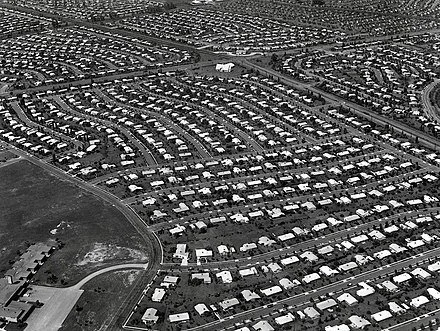Donald Trump’s hostile takeover of the Republican Party is nearly complete. I was as slow as the next guy to see in coming. But now that the fox is almost in charge of the chicken coop. I have some ideas about why it happened, and why just now.
Let’s go back to the last time a billionaire decided to run for president. That was 1992, when software entrepreneur H. Ross Perot ran as an independent candidate. I was able to refresh my memory thanks mainly to a useful conference volume, Ross for Boss: The Perot Phenomenon and Beyond (SUNY Press, 2001), edited by Ted G. Jelen, of the University of Nevada at Las Vegas. This comparison last September by John Dickerson of Slate was prescient.
Perot was born in Texarkana, Texas, in 1930, the son of a cotton broker. An Eagle Scout, an Annapolis graduate, a star salesman for five years for IBM Corp., he quit in 1962 to found a software firm, Electronic Data Systems. In 1984 he sold the company to General Motors Corp., its principal client, for $2.4 billion. Four years later he and his son started a second firm, Perot Systems Corp. They sold it to Dell Inc., in 2009, for $3.9 billion
During the 1980s Perot became absorbed in POW/MIA issues in Vietnam. By the early ’90s, he had become involved in many of the larger controversies of the day. During 1991, he appeared regularly on popular television talk shows, criticizing presidents Ronald Reagan and George H. W. Bush for having failed to balance the federal budget. He portrayed Washington as being in the grip of lobbyists, many of them working for foreign interests. He criticized trade agreements. He denied having presidential ambitions.
In February 1992, Perot appeared on Larry King Live to encourage citizens to nominate him by petition in 50 states as presidential candidate of the Reform Party. He proclaimed his lack of political experience as an asset. He promised to spend as much as $100 million of his own money – more than either party could expect to raise in those days well before the Supreme Court struck down spending limitations – and argued that meant he couldn’t be bought. By June, he was running even with Bush and Bill Clinton in most polls.
That same month he got in an argument with two high-profile political consultants who urged him to immediately launch an expensive advertising campaign, and, when one of them resigned, Perot asserted that he, too, would withdraw, explaining that he felt that he had revitalized the Democratic Party by threatening to enter the contest. A barrage of negative publicity followed. Perot was ridiculed as eccentric and judged to be a quitter.
In late September Perot returned to the race, “for the good of the country,” in time for three televised debates among the candidates in October. This time he emphasized opposition to the pending North American Free Trade Agreement, and warned of the “giant sucking sound” accompanying jobs lost overseas. He spent nearly $50 million in a month on “infomercial” advertising, much of it in states that he had no hope winning.
Perot received 19 percent of the popular vote in the November election, but failed to win a single state and received not a single vote in the Electoral College. Clinton slipped past Bush with 43 percent of the popular vote. Martin Nolan, chief political correspondent for The Boston Globe for 30 years, remembers, “Perot did not defeat GHWB electorally, but more by draining attention. He made the incumbent president a ‘low-energy’ candidate.”
Four years later Perot was back, this time as the official nominee of his Reform Party. This time he polled fewer than half as many votes. He left politics and returned to the relative obscurity of the business world.
Perot’s role in galvanizing support for budget-balancing measures is still hotly debated. The Clinton administration, the Federal Reserve, Congress and the Federal Communications Commission all played a part (the FCC by facilitating the rapid build-out of communications technology and the Internet).
In any case, by the end of the ’90s, the federal budget was balanced. Perot’s criticism of trade-liberalization measures found little traction, though. The North American Free Trade Agreement became law in 1994, and the following year the World Trade Organization replaced the General Agreement on Tariffs and Trade.
Perot’s greatest influence was probably that described by his running-mate in 1992, Adm. James Stockdale: “Ross showed you don’t have to talk to [ABC’s] Sam Donaldson to get on television…. American candidates can now bypass the filters and go directly to the American, people.” Subsequent independent presidential candidates have included Pat Buchanan and Ralph Nader.
Fast forward to 2016 and Donald Trump. Much has changed since 1992.
Exhibit A is an important new essay by a trio of labor economists, arguing that trade theorists didn’t well understand what was happening in the world these last 35 years – particularly the last 10. Read “The China Shock,’’ by David Autor (of the Massachusetts Institute of Technology), David Dorn (of the University of Zurich), and Gordon Hanson (of the University of California at San Diego) is headed for the authoritative Annual Review of Economics. They argue that theorists failed to anticipate how extensive dislocations would be, especially in the U.S.:
“Just as the economics profession was reaching consensus on the consequences of trade for wages and employment [that they would be modest], an epochal shift in patterns of world trade was gaining momentum. China, for centuries an economic laggard, was finally reemerging as a great power, and toppling established patterns of trade accordingly. The advance of China…has also toppled much of the received empirical wisdom about the impact of trade on labor markets. The consensus that trade could be strongly redistributive in theory but was relatively benign in practice has not stood up well to these new developments.’’
Talk about an inconvenient truth! Is Donald Trump right? Were we fools to liberalize so quickly? I don’t think so. The short-term and medium-run costs are clearly greater than had been expected: Poorer cities are remarkably slow to adjust, with wages and labor-force participation rates remaining depressed, and unemployment rates high, for a decade and more.
But is the world a better, safer place than when it was divided into market economies, communist nations, and Third World growing ever-so-slowly, if at all? Steven Radelet, of Georgetown University, makes the case in The Great Surge, the Ascent of the Developing World (Simon and Schuster, 2015). In Global Inequality: A New Approach for the Age of Globalization (Harvard/Belknap Press, 2016), Branko Milanovic, for many years lead economist at the World Bank, describes the stresses.
In any event, it appears that most of the hectic global transition is over. Today it is China that is contemplating layoffs. The greatest gains from trade almost certainly lie ahead – but for whom?
Meanwhile, Peggy Noonan, the former Reagan/George H.W. Bush speechwriter who for many years has been an influential columnist for The Wall Street Journal, describes the new contest as between the “protected” and the “unprotected.” She recently told Karen Tumulty, of The Washington Post, “We are witnessing history. Something important is ending.”
What has already ended, I think, were the 50 wonderful years after 1945 in which the United States, having emerged less scathed from World War II, was more or less unchallenged as the world’s only economic superpower – a long splendid day in which the eight years of the Reagan administration constituted the late afternoon.
How might Trump do with issues like these in the general election? Again, Marty Nolan: “In ’92, Perot prospered in cold, remote country: Maine, Minnesota, Alaska. He was zip in the late Confederacy.” If you look at the maps of exposure to industrial competition in “The China Shock,’’ it’s the Midwest and the Southeast where the trade shocks have hit hardest. Slim chance that Trump would, like Perot, go away with a goose-egg, if he is the nominee.
That said, I fully expect Hillary Clinton to win in November. She has the right language to succeed: The task now is to fill in what has been hollowed out. If Trump is its candidate, the trick for the GOP to learn as much as possible from this election to shed the heavy burden of ideology that Trump has lampooned, to abandon the absolutism of recent years in favor of practical compromise – either that or fade into history.
So it seems possible, even likely, that Trump’s campaign will prove helpful to straightening things out between the parties. I think Paul Krugman got it exactly right when he wrote the other day: “We should actually welcome Trump’s ascent. Yes, he’s a con-man, but he’s also effectively acting as a whistle-blower on other people’s cons. That is, believe it or not, a step forward in these weird, troubled times.”
To which I can only add, yes, that’s so, as long as Trump is defeated soundly enough to discourage a third such billionaire in the future, one who might be smarter than the first two.
David Warsh, a longtime financial journalist and economic historian, is proprietor of economicprincipals.com.














